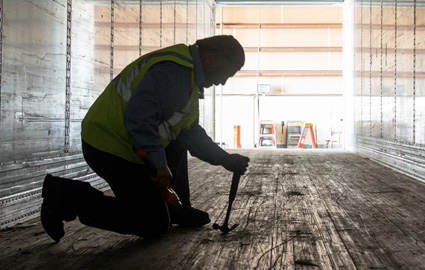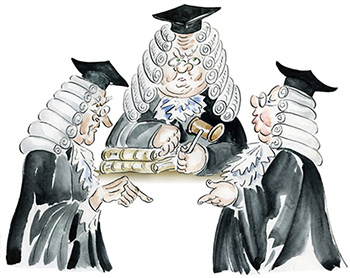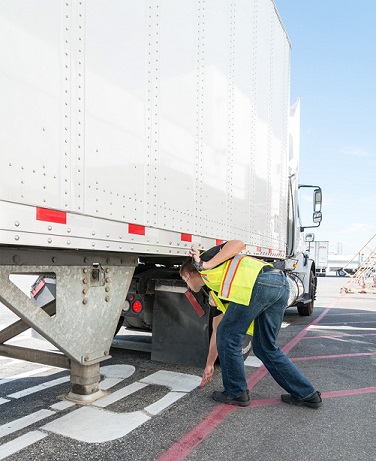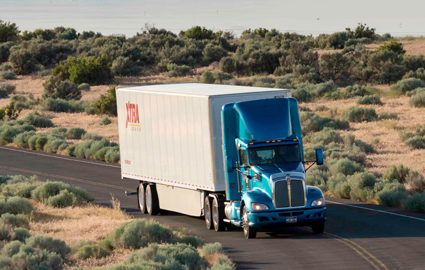
Nuisance Fees: Fair Treatment When You Turn in A Trailer?
Nuisance fees aren’t just annoying. They can cost you big.
Remember video rental stores? They were a product of the 1980s—the decade that produced jelly shoes, wine coolers, and “The A Team.” Sure, video stores were really convenient. You could pick up a hit movie to watch at home, but it might cost you a princely sum, especially if you returned the videotape an hour late or forgot to rewind it.
That’s what’s known as a nuisance fee.
Nuisance fees aren’t new
 History tells us nuisance fees have been around for a long time, often in the form of oddball taxes.
History tells us nuisance fees have been around for a long time, often in the form of oddball taxes.
In 1705, Russian Emperor Peter the Great assessed a tax on beards. And speaking of hair, if you ever wondered why men quit wearing powdered wigs, the decline began in 1795. That’s when England put a tax on the powder that gave the wigs a “fresh” scent.
Nuisance fees just plain stink.
Buy a ticket to a sporting event or a concert and you’ll pay a “convenience fee.” It’s definitely convenient for the ticket-seller. How about contract fees on a car loan or points on a mortgage? Lenders don’t advertise those alongside the APR. Then there’s the Irish discount airline that charges 1 euro to use the lavatory. Hospitality at its best. And, of course, we’ve all paid “foreign ATM” fees or “teller fees”. Because, you know, money just costs more at some banks. Right.
Surprise bills for trailer damage
Now what if you damaged that videotape? You’d expect to pay for it, right? But you wouldn’t expect to pay more than full retail price. Or to pay for a replacement, then find out the store didn’t replace the tape.
Sometimes bills for damage can seem like a thinly veiled attempt to squeeze a few more cents out of a customer.
Especially if they’re downright silly—like assessing a damage charge for normal wear on a trailer tire. That’s what happened to a regional Midwest carrier that gets trailers from several leasing companies, with as many as 180 leased trailers on the road at any given time.
The company’s safety manager reports that one vendor charged more for wear on a tire than it would cost to replace the tire with a new one. On another occasion, the same carrier got sticker shock when his invoice showed a charge to replace brake linings—even though they were thicker than 2/8”, roadworthy to the DOT.
The same safety manager recounts other charges for damage he’s found suspicious, like for bushings when the leasing company said the returned trailer was out of alignment. The most annoying aspect of these, he said, was that there was no way of knowing whether the defects were present when the trailer was leased.
These were not nickel-and-dime charges, either. The safety manager said he’d gotten bills as high as $6,000.
Bruises?
The owner of another Midwest carrier with 110 leased trailers says he’s seen it all in his 40 years in the business. That includes leasing companies that charged customer after customer for the same repair they never actually made.
“Some companies will charge the carrier turning in the trailer for the damage, but never fix it because it didn’t affect the safety of the cargo,” he said. “Then they’ll lease it again, and charge the next customer for the same thing. They keep charging for fixing it but they never fix it.”
The same owner said he’s seen a leasing company provide outbound paperwork that read like the equipment was brand new. But when the trailer came back, it was written up to look like it had been through a war zone. “It got dinged for cuts, bruises, brakes, tires, door seals, ply linings, scuffliner, you name it,” he said.
Other carriers report similar stories, like charges for sweep-outs and minor scratches and dings that were no more than cosmetic damage.
Accidents will happen. According to one trucking company owner, “Even if you’ve got a brand new trailer, somebody’s going to bump it—it’s the nature of the business.”
That’s why trailers are built to withstand rough conditions. They’re designed for safety and strength, not beauty.(Although a final bill without nuisance charges is a beautiful thing.)
A good outbound inspection
The best prevention for nuisance fees is a good outbound inspection.
The key to fair treatment on returns is to make sure any defects in the trailer are identified up front, before your driver hauls the trailer out of the leasing company’s yard.

A good outbound inspection doesn’t mean just a quick look at the exterior of the trailer.
It means an inspection of the trailer’s structure—the frame, panels and crossmembers—so comprehensive that it will catch even a sheared rivet or potentially compromised cross-brace. It means thoroughly going over not just tires, brakes, and lights, but also components like the undercarriage, gladhands, and landing gear.
That outbound inspection is then a map for the inbound inspection. It gives you and the leasing company a clear and true picture of what’s changed since you picked up the trailer. Comparing the trailer’s current condition to that thorough outbound inspection will reduce the likelihood of nuisance fees.
Another prevention for nuisance fees? A formal, published policy that spells out
- the way the leasing company conducts inspections
- how the leasing company will handle damage that occurs while you have the trailer on rent or lease
The more details, the better!
Find out your leasing company’s policies before you sign a rental/lease agreement. A “no-nuisance charge” policy is a good sign you’re dealing with a reputable company. And one that won’t make you pay for a dusty floor.
Some links to get you thinking:
